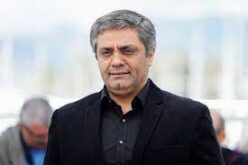nationworldnews – According to recent reports, the British government is in a dilemma whether to ban the Iranian Revolutionary Guards (IRGC) as a terrorist group. While the Home Secretary, Suella Braverman, and the Security Minister, Tom Tugendt, support the measure and align themselves with US policy, the Foreign Secretary, James Cleverly, appears to oppose it.
Critics argue that the tact is misled by officials and that their stance is influenced by them. Last week, British-Iranian activist Vahid Beheshti ended his 73-day hunger strike outside the Foreign Office building in London. Beheshti, who is recovering in hospital, has urged the British government to ban the IRGC and is supported by more than 100 British MPs.
Members of the Iranian Revolutionary Guard in Tehran carry the ferret of Iranian Revolutionary Guard Brigadier General Mohsen Ghazaryan, who was assassinated in Syria’s northern province of Aleppo.
Divided british government
A possible ban on the IRGC has sparked an internal debate in the British government. On the one hand, the United States considers the IRGC a “foreign terrorist organization” and points to its record of killings and attacks against civilians in the region and the world. British authorities have recently revealed that they have foiled 15 Iranian plots to kidnap or assassinate people in the UK whom they consider “enemies of the regime”.
However, the Ministry of External Affairs shows some reluctance towards the IRGC terrorist designation, arguing that it is necessary to consider intelligence and maintain dialogue rather than make a unilateral “gesture”. There are concerns about possible retaliation by Tehran, such as attacks on British nationals in Iran or on British soil.
In this September 21, 2016 file photo, Iranian Revolutionary Guard soldiers march in a military parade in Tehran, Iran.
Calls for IRGC Sanctions
Despite internal divisions, voices inside and outside the government support the IRGC ban. Labor Party Shadow Security Minister Holly Lynch joined the call, saying the ban would not just be a symbolic gesture, but a powerful step to give law enforcement powers to counter support for the IRGC within the UK.
Speaking at a security conference in London, Lynch expressed outrage at the 15 plots destroyed in the country and pointed out the importance of protecting journalists in Britain. Furthermore, he highlighted the need for a forceful response from the UK in the face of hostile states that export tyranny and persecute their opponents on British soil.
The final decision on the UK’s IRGC ban remains uncertain, but pressure to take concrete action is mounting both within the government and from the opposition. The debate over the IRGC ban draws on the complex relationship between the UK and Iran, as well as the national security and diplomatic implications at stake.
 Shabtabnews In this dark night, I have lost my way – Arise from a corner, oh you the star of guidance.
Shabtabnews In this dark night, I have lost my way – Arise from a corner, oh you the star of guidance.



